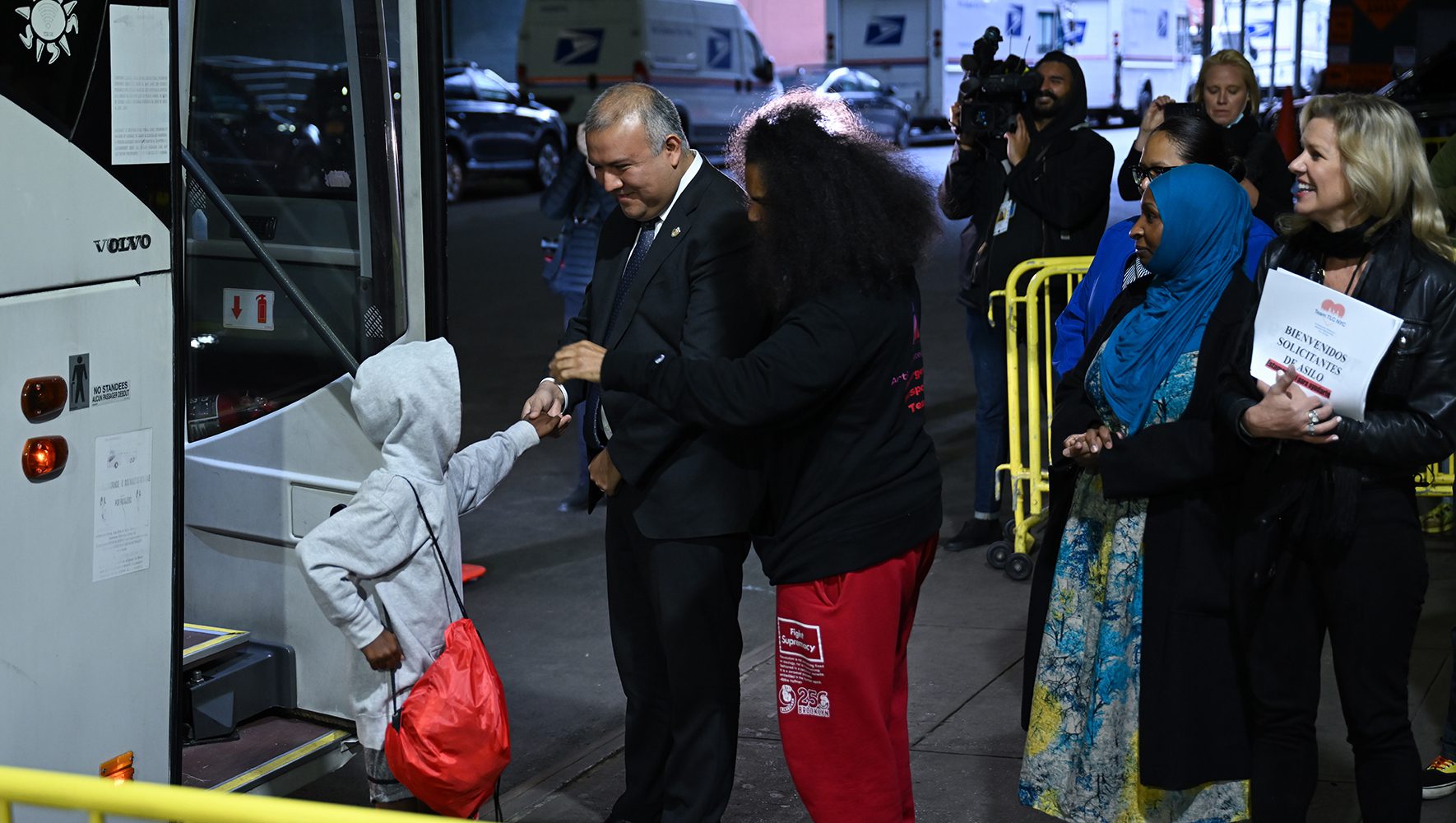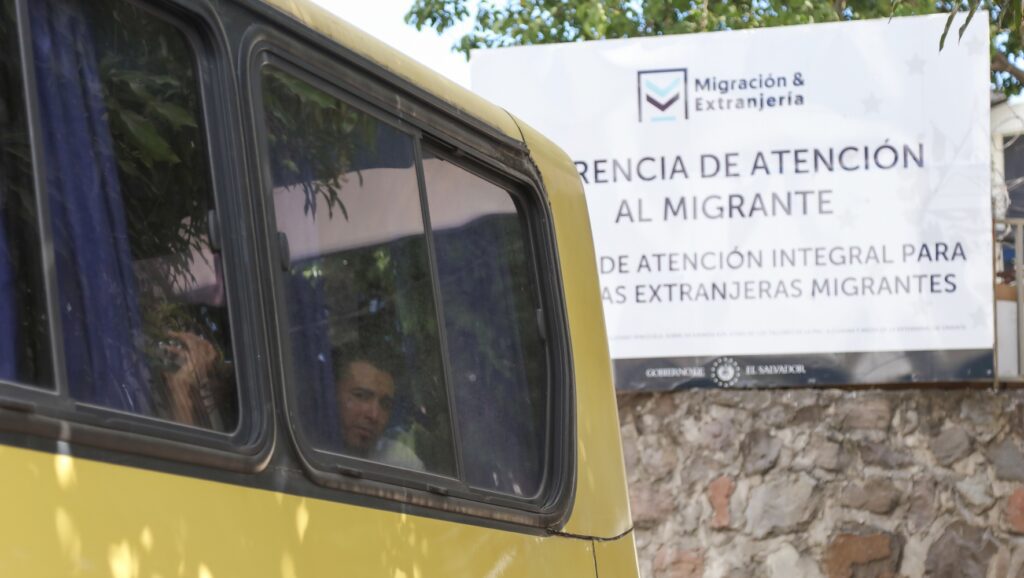This page was last updated September 28, 2023. Click here to learn about HIAS’ current volunteer opportunities.
Over the last two years, many cities around the country have seen an increased number of migrants and asylum seekers arriving from the U.S.-Mexico border. They come from all around the world, often in search of a safe haven after fleeing extreme danger, persecution, and violence in their home countries. While some have chosen to move to cities around the country, many others have come on buses sponsored by the governors of Arizona, Florida, and Texas — often without a clear understanding of where they are going and what support and resources they can expect when they arrive.
The U.S. needs a fair, orderly asylum process at the border. Instead, successive administrations have slammed the door in the faces of asylum seekers through restrictive policies that deny people their legal right to seek asylum in the United States, creating chaos and desperation and putting lives at risk.
Like generations of immigrants before, recently arrived migrants and asylum seekers deserve dignity, respect, and compassion, regardless of their status. It is up to us, as individuals and as communities, to actively welcome these new arrivals and encourage our elected officials to do the same. We all have a role to play in welcoming newcomers, combatting anti-immigrant sentiment, and building a more just and compassionate country.



